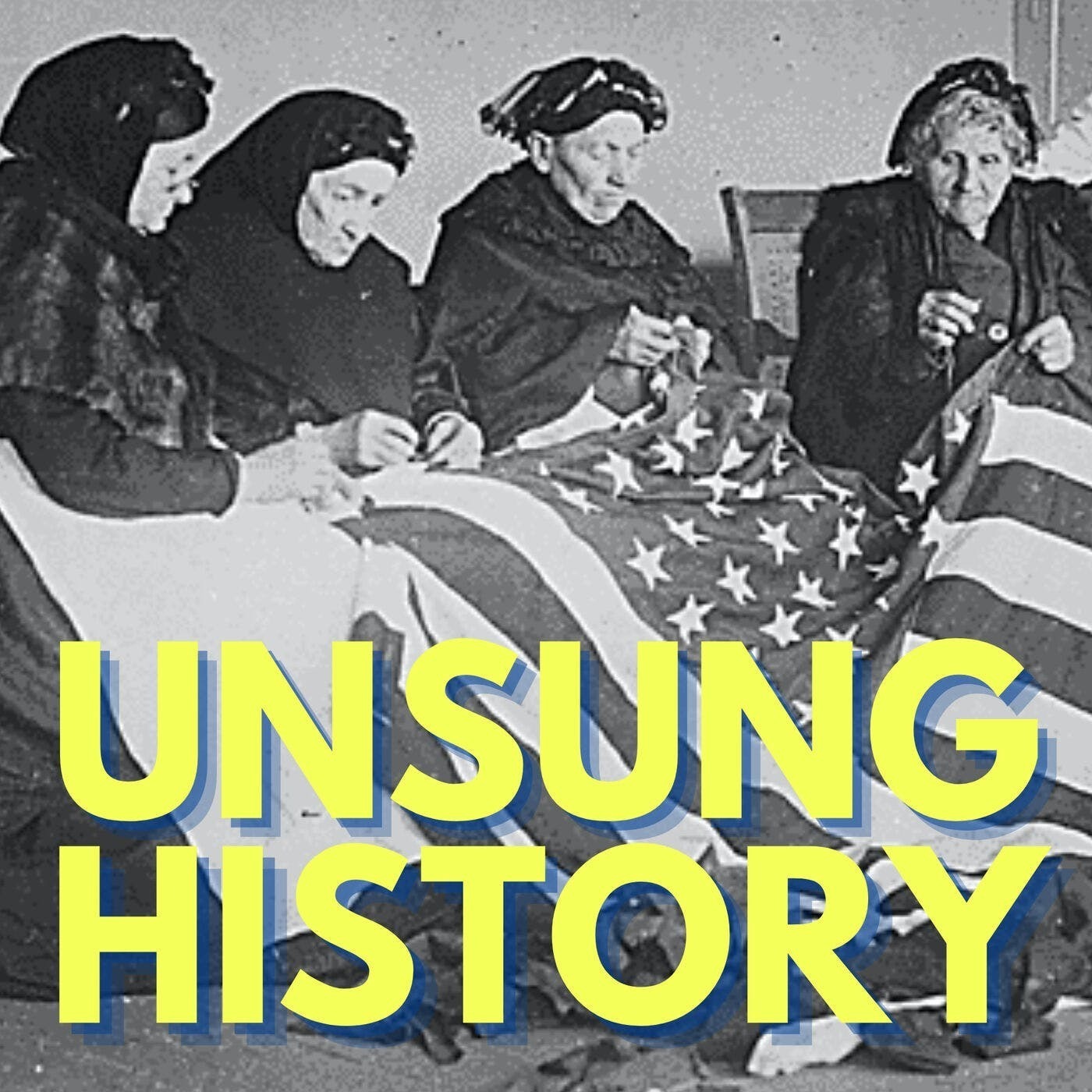The Jazz Maestros of Jim Crow America
Description
Duke Ellington, Louis Armstrong, and Count Basie came of age in a deeply segregated country, battling racism to become celebrated musicians, composers, and band leaders whose music lives on. Joining me this week to discuss the lives and careers of these three musical geniuses is writer and journalist Larry Tye, author of The Jazzmen: How Duke Ellington, Louis Armstrong, and Count Basie Transformed America.
Our theme song is Frogs Legs Rag, composed by James Scott and performed by Kevin MacLeod, licensed under Creative Commons. The mid-episode music is “Riverside Blues,” performed by King Oliver's Creole Jazz Band in 1923; the song is in the public domain and available via the Internet Archive. The episode images are: “Count Basie,” taken by James J. Kriegsmann in 1955, Public domain, via Wikimedia Commons; “Louis Armonstrong,” Herbert Behrens / Anefo, CC0, via Wikimedia Commons; and “Duke Ellington,’’ Associated Booking (management), 1964, Public domain, via Wikimedia Commons.
Additional Sources:
“MLK Jr. on Jazz, The Soundtrack of Civil Rights,” by Mark Taylor, San Francisco Conservatory of Music, January 14, 2022.“Duke Ellington, a Master of Music, Dies at 75,” by John S. Wilson, The New York Times, May 25, 1974.“Seven facts to learn about Duke Ellington,” by Cristiana Lombardo, PBS American Masters, July 18, 2022.“Duke Ellington,” Songwriters Hall of Fame.“Louis Armstrong, Jazz Trumpeter and Singer, Dies,” by Albin Krebs, The New York Times, July 7, 1971.“Louis Armstrong Biography,” Louis Armstrong House Museum.“9 Things You May Not Know About Louis Armstrong,” by Evan Andrews, History.com, Originally published August 4, 2016 and updated June 1, 2023.“Count Basie, 79, Band Leader and Master of Swing, Dead,” by John S. Wilson, The New York TImes, April 27, 1984.“Count Basie Biography,” Rutgers University.“William ‘Count’ Basie,” National Endowment for the Arts.
Advertising Inquiries: https://redcircle.com/brands
More Episodes
As the Civil War was drawing to a close, President Lincoln was preparing for what came after, with plans for reunification of the country, and he began to advocate for limited suffrage for Black Americans. John Wilkes Booth’s bullet cut short those plans, and Southerner Andrew Johnson, who was...
Published 05/27/24
Published 05/27/24
Fictional depictions of Southern plantations often present romanticized visions of genteel country life, but for the people enslaved on plantations the reality was that of a forced labor camp. At the same time the plantation was also their home. And although they had no choice in where or how...
Published 05/20/24


